Artificial Intelligence (AI) is revolutionizing marketing as a whole, bringing innovations that improve business strategies in unprecedented ways. For B2B and B2C companies, adopting AI in marketing is now essential to remain competitive and relevant. This article explores how AI in marketing is transforming the industry, from automating tasks to personalizing campaigns to optimizing decision-making.
What is Artificial Intelligence and How Does It Apply to Marketing?
Artificial intelligence refers to a set of advanced technologies that enable machines to learn, adapt, and perform human-like tasks, such as analyzing data and predicting behavior. When applied to marketing, AI becomes a powerful tool for analyzing consumer data, personalizing experiences, and automating processes.
With AI marketing, industry professionals can gain deeper insights into consumers and make strategic decisions based on real-time data. AI marketing technologies go beyond simple automation of tasks: they can process massive amounts of data, identifying trends and purchasing behaviors with a precision that traditional marketing methods could never achieve.
Marketing Process Phases Transformed by Artificial Intelligence
AI is changing every step of the marketing process, from market analysis to campaign creation. Let’s see how:
- Data Analysis and Audience Segmentation
Thanks to artificial intelligence, companies can segment their audiences much more precisely, collecting demographic, behavioral and psychographic data. This allows them to create customized marketing strategies that can better respond to the specific needs of each segment. - Personalization of Marketing Campaigns
One of the biggest innovations is the ability of AI to personalize marketing campaigns at scale. AI tools can analyze individual user preferences and behaviors to deliver relevant content and offers, increasing engagement and conversions. - Distribution Optimization and Campaign Management
AI systems in marketing allow marketers to optimize campaign distribution, automatically deciding where and when to deliver messages for maximum impact. This process, called marketing automation, has become crucial for companies that want to maintain the effectiveness of their strategies without having to invest large manual resources. -
Analyze Results and Continuous Improvement
AI can analyze campaign results in real time, allowing marketers to make instant adjustments to optimize performance. Continuous learning allows AI to improve the performance of future campaigns, ensuring continued growth.

How Artificial Intelligence Can Be Applied to Marketing
Artificial Intelligence in Marketing is not limited to automation. Here are some key applications of AI in marketing:
- AI-Powered Chatbots: They enable businesses to offer 24/7 customer support, answering frequently asked questions and guiding users through the purchasing process. Chatbots improve the user experience and reduce service costs.
- Predictive Analytics: Thanks to AI, marketers can predict future purchasing behaviors, anticipating customer needs and adapting marketing strategies.
- Content Creation and Content Curation: AI can help in the automated creation of content, such as product descriptions or blog posts. Additionally, AI-based algorithms can curate existing content and personalize it for different audience segments.
Marketing Automation: Artificial Intelligence as an Ally to Automate Marketing Activities
Marketing automation is one of the most powerful aspects of AI in marketing. Automating marketing activities allows companies to optimize their time and resources by letting AI handle repetitive tasks such as sending emails, managing leads, and tracking campaigns.
Benefits of AI-based marketing automation:
- Real-time personalization: Marketing automation with artificial intelligence allows you to send personalized messages at the right time, based on user behavior and preferences.
- Increased effectiveness of email marketing campaigns: Artificial intelligence allows you to analyze historical data and predict the best times to send emails, increasing the opening and conversion rate.
- Reduced operating costs: Automating activities reduces the need for manual interventions, making marketing processes leaner and less expensive.

Advantages and risks of artificial intelligence in marketing
While AI for marketing offers significant benefits, it’s important to also consider potential risks and limitations. For example, too much automation could reduce human contact, potentially alienating some customers. Additionally, the use of personal data for AI-based marketing raises privacy concerns.
Key Benefits of Artificial Intelligence in Marketing:
- Better Consumer Understanding: AI tools enable data collection and analysis, providing a more detailed view of user preferences and behaviors.
- Operational Efficiency: Automating tasks reduces the time and resources needed to run a marketing campaign.
- Advanced Personalization: AI can provide personalized experiences at scale, increasing customer satisfaction and improving conversion rates.
Risks to consider in AI marketing:
- Data Privacy and Security: Using large amounts of personal data carries the risk of privacy breaches and loss of customer trust.
- Technology Dependence: Over-reliance on AI systems could reduce human creativity and intuition, which are still essential in marketing.
How to Integrate Artificial Intelligence into Your Business Marketing Strategy
Integrating AI into your marketing strategy requires a clear vision and strategic planning. Here are some essential steps for effective implementation:
-
Identify your goals: Before adopting AI solutions, it is important to define what goals you want to achieve. Whether it is improving personalization, increasing engagement or optimizing campaigns, the goals will guide the implementation of AI in marketing.
-
Choose the right tools: There are several software and tools based on AI, each with specific features for marketing. From marketing automation platforms to predictive analysis systems, the choice of the tool must reflect the needs and capabilities of the company.
-
Monitor and adapt: AI marketing is constantly evolving, and it is essential to monitor the performance of the technologies implemented, making continuous improvements to achieve maximum results.
HubSpot and the use of artificial intelligence applied to marketing
HubSpot is a CRM that uses AI in multiple ways to power its marketing, sales, and customer service platforms, making marketing more effective and personalized. Here are the main areas where HubSpot integrates AI.

1. Automated Lead Scoring and Segmentation
HubSpot's AI allows you to automatically assign a score to your leads, identifying those most likely to convert. This "lead scoring" is based on predictive models that analyze past interactions, user behaviors and other parameters to predict purchase intent. Thanks to AI, you can segment your contacts into targeted groups, making your marketing campaigns more personalized and effective.
2. Email Marketing and Content Personalization
HubSpot uses AI to personalize email marketing campaigns at scale, analyzing user behavior to decide the best time to send and the most appropriate content for each recipient. AI also helps create personalized content for site visitors, adapting web pages based on previously collected data, such as browsing history and stated preferences.
3. Chatbots and Automatic Assistance
HubSpot uses AI-powered chatbots to improve customer service and support marketing efforts. These chatbots can answer frequently asked questions, help users find information, and direct them to the right product or service. They also integrate AI to adapt to customer needs in real time, improving the customer service experience and generating leads for sales teams.
4. Content Strategy and SEO
HubSpot's platform includes AI-powered tools to help marketers develop content strategies and improve SEO. AI analyzes search trends, suggests relevant topics, and identifies keywords that can increase organic traffic. It also provides suggestions for optimizing content, making search engine positioning more effective.
5. Predictive Analysis and Sales Forecasting
HubSpot uses AI models for predictive analytics and sales forecasting, helping companies identify market trends and predict future performance. These tools enable sales and marketing teams to make more informed, data-driven decisions, maximizing the return on investment of their campaigns.
6. Customer Experience Optimization
Using AI, HubSpot monitors and analyzes customer feedback, helping companies better understand their audience’s needs. AI analytics can suggest ways to improve the user experience (UX) on the site and predict customer satisfaction. This way, teams can respond quickly to any issues, improving loyalty and customer retention.
The Future of Marketing and Artificial Intelligence
Artificial intelligence will continue to transform the way marketing is done, opening up new possibilities for companies in every sector. The use of marketing solutions based on artificial intelligence allows you to automate, personalize and optimize work in the company like never before. Artificial intelligence not only makes existing marketing strategies more effective, but also offers new opportunities for interaction with consumers, improving the entire customer experience.
Using it with the right platforms can give a significant plus to a company. HubSpot was born with the aim of making customer relationship management and internal business management easier, also thanks to AI. Do you want to know more about this software? Contact Ekeria, HubSpot Italia partner, for a free demo. Book it now!
.webp)


